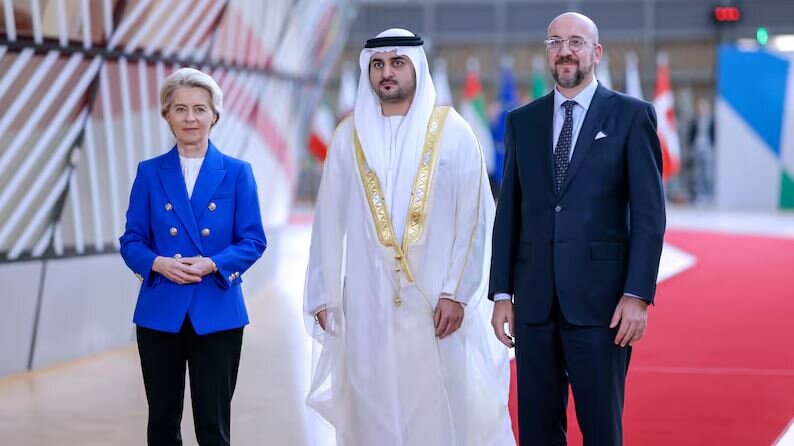Iran’s trio islands and claims of the old colonist

TEHRAN – The European Union and the Persian Gulf Cooperation Council issued a joint statement at their summit on October 16, 2024, with two notable articles focused on Iran. This note delves into the motivations behind their inclusion in the statement.
Following World War II, as a new world order emerged, a war-torn Europe found itself aligned with the United States, the new superpower. Faced with the devastation of war, Europe had little choice but to follow America's lead, striving to maintain a liberal order against the threat of communism while protecting the continent. The collapse of the Eastern Bloc and the formation of the European Union opened the door for new possibilities, but the EU found itself largely overshadowed by the United States. To break free from this shadow and assert its power as a global player, the EU sought to establish a stronger presence in various regions of the world, including West Asia.
West Asia holds significant appeal for the EU, but the region is already a crowded field. The United States, China, and Russia have long been vying for influence, each offering unique benefits to secure their foothold. In its quest for greater acceptance and geostrategic advantage, the EU is willing to go to great lengths. Issuing statements that challenge the sovereignty of other nations seems to come very easy to them. While this may partially explain the inclusion of Articles 45 and 46 in the EU-GCC statement, the situation is more complex than it appears.
Articles 45 and 46 of the joint statement, which specifically address Iran, use interesting phrasing. They emphasize adherence to international law, respect for sovereignty and territorial integrity, non-interference in internal affairs, and the rejection of force or threats. However, recommending these principles while Gaza and Lebanon are drenched in blood appears hypocritical, reminiscent of the negative, long-term effects of excessive alcohol consumption on the brain.
The most significant issue raised in the statement is the accusation of "occupation" against Iran. The term "occupation" has historically been associated with one regime in the region: the Zionist regime. Accusing Iran of occupation, while ignoring the region's numerous border conflicts, suggests that the EU is intentionally providing breathing room for the Zionist regime.
Arab leaders and public opinion, witnessing the brutal actions of the Zionist regime and its disregard for humanitarian boundaries, are now questioning when the regime will turn its aggression towards them. The EU's actions in this situation only serve to deepen negative perceptions and feelings of threat towards Iran and the resistance axis within Arab countries. While trying to convince Arab nations to ignore the Zionist regime's ambitions of occupation, the EU seems intent on presenting a new, equally dangerous occupier and for now it has set its eyes on Iran.
Iran's position on its three islands is unwavering. Just as it wouldn't entertain negotiations over the sovereignty of Tehran or Shiraz, it will not compromise on its territorial integrity and negotiate about the three Persian Gulf Islands either.
The United Arab Emirates is well aware that efforts to gain support from countries outside the region, and even to create a global consensus, will not change the reality, and Iran has clearly demonstrated its sensitivity to its territorial integrity. In fact, security is a matter that only the original inhabitants of this region truly understand. Just as the UAE needs security for the growth of its cities and skyscrapers, Iran also values peace and cooperation with its neighbors. Therefore, if anyone deserves criticism for escalating tensions in the region, it is the countries that jeopardize their neighbors' security by hosting U.S. military bases in the area.
